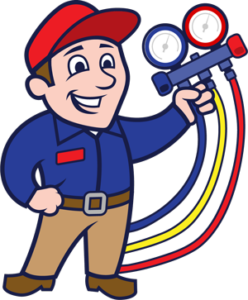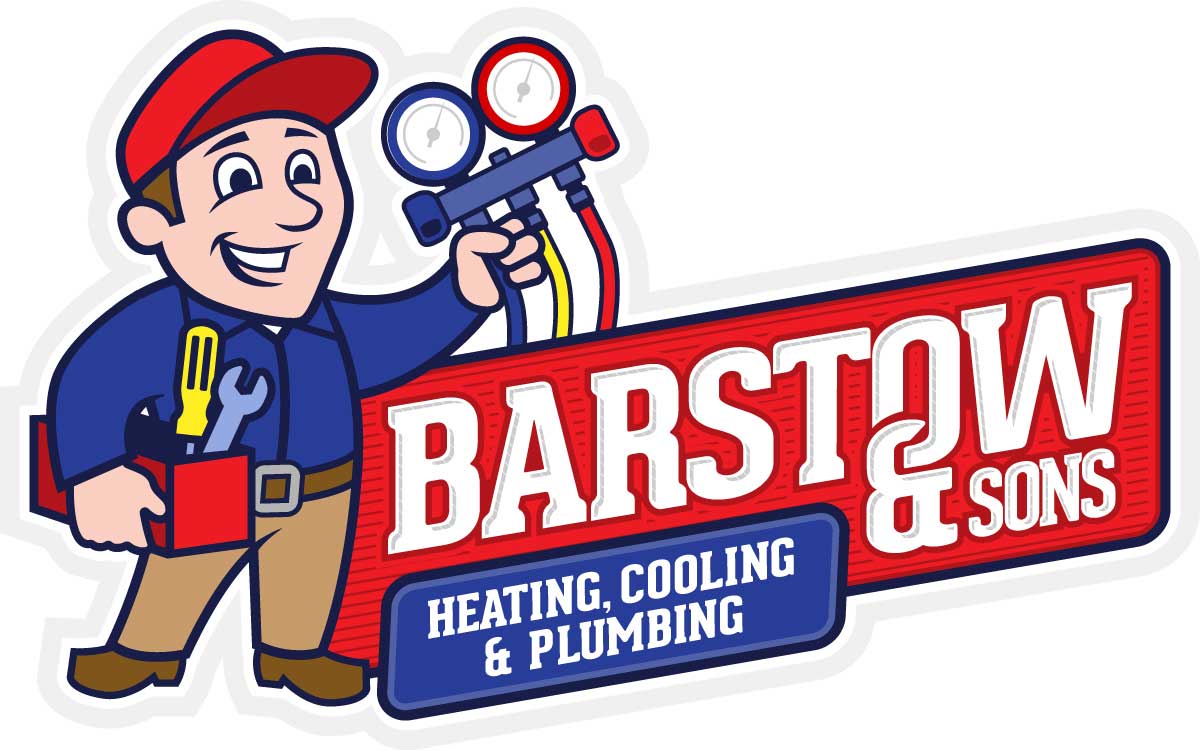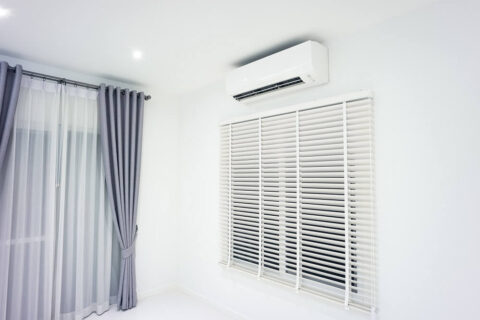11 of the Most Frequently Asked HVAC Questions
To most people, how air conditioners work is a matter of magic. They don’t know how HVAC systems make temperatures bearable in their homes and offices, but they’re awfully glad they do.
According to the U.S. Department of Energy, 75 percent of all homes in the U.S. have air conditioners. These devices use about 6 percent of all the energy produced in America. U.S. homeowners spend about $29 billion on energy costs each year related to controlling the temperature inside their homes.
Air conditioners work by applying the principles of refrigeration. They remove heat from an area of the home to the outside, and the cold air created by this process is distributed by a fan through ducts throughout the home.
Heating and cooling units are very durable devices. Most run several hours per day and have a useful life of 15 years or more. Considering their workload and the fact that the units are exposed to wind and rain and hot and cold temperatures outside, that’s pretty impressive.
When homeowners’ air conditioners aren’t working properly, they get curious about how these devices that they often take for granted work. Here are some of the most commonly asked questions about heating and cooling units:
How often do I need to change my air filters?
Once a month is a pretty good rule of thumb for most people. Depending on where you live and how much dirt, pet dander, and other contaminants are present, the answer could be more or less. Check your filter frequently to determine if it’s dirty. If it is, change it.

What size unit do I need?
There’s no easy answer for this one. A lot of factors will go into what size heating and cooling unit you’ll need. The type of house you own, its walls, insulation, attic space, and more can go into determining what size unit is required. A system that is too large could result in a home that’s too humid, causing problems with moisture and mold. A system that is too small will run constantly, running up your energy bill. Only a qualified heating and cooling technician can determine what size unit is best for your home.
If I replace my outdoor unit, do I need to also replace my indoor unit?
In most cases, the answer is yes. There are a variety of reasons why you should replace both the outdoor and indoor units simultaneously. For starters, air conditioner and heat pump outdoor units are manufactured to work with a matched indoor unit. When you mix and match units, it can result in reduced efficiency and performance.
Also, if you bought your indoor and outdoor units at the same time, your indoor unit will probably be approaching the end of its useful life at about the same time as the outdoor unit. By not replacing the indoor unit too, all you’re doing is delaying the inevitable and likely paying higher energy bills at the same time.
By purchasing indoor and outdoor units simultaneously, you’ll get a warranty covering the whole system, meaning that you won’t have to cover the full cost of any needed repairs to your unit during the warranty period.

Should I cover my unit in the fall and winter?
While covering your unit can prevent unwanted debris from accumulating on the unit, it can also cause problems if you try to operate it with the covering in place. If you’re going on a long trip and plan to turn the unit off while you’re gone, feel free to cover it up. Just make sure you disconnect the power source before leaving.
Why should I replace my R-22 outdoor unit with an R410A?
R-22 refrigerant and equipment are being phased out as Montreal Protocol regulations intended to reduce the impact on ozone take hold. As time passes, replacement parts and refrigerants for old R-22 units will become harder to find and more expensive, so replacing your unit now can save you some headaches in the future.
What causes AC units to freeze up?
There are a lot of reasons why your air conditioning system might freeze up, and all of them require help from a professional technician to resolve, as only they have the training and correct tools to fix the problem.
Ironically, low refrigerant can cause your system to freeze up. Over time, wear and tear to your system can result in leaks that cause the system to lose refrigerant. When your unit loses refrigerant, it causes the system to freeze up because of low pressure inside the system.
When freon levels are low, the refrigerant still is forced to expand to the same amount. The more that expansion occurs, the cooler the temperature is produced. The colder temperature will cause moisture in the air around your unit’s evaporator coil to freeze, eventually icing up the coil and impeding its function.
Dirty evaporator coils can cause units to lose airflow and, eventually, cause the system to freeze up. Defective blower motors can also cause freezing.
How often should I have my unit serviced?
Heating and cooling units need to have scheduled check-ups to make sure everything is operating properly. HVAC experts recommend an annual inspection and service call by your heating and cooling company. Technicians should inspect your system, lubricate components, and repair or replace any malfunctioning components.
Why are my ducts making a popping sound when the furnace starts or stops?
Popping noises are usually indicative of ducts that are too small to manage the airflow your system is generating. Qualified air conditioner repair specialists can evaluate your ductwork and make necessary adjustments.

What is a zoning system?
Zoning Systems separate your air conditioning system’s ductwork into different segments, allowing you to exercise temperature control in each segment, thus allowing for more targeted and efficient air conditioning.
For example, you may have a room with many windows that gets hot in the summer and which may need more air to cool down, while you may also have a rarely occupied guest room on the other end of the house. With a zoned air conditioning system, you can direct more cold air to the many-windowed room and less air to the unoccupied room. This allows for more efficient use of your AC system and more comfortable home.
What can I do about indoor air quality?
Indoor air quality is a major concern, as many studies show that air pollution is much worse indoors than outdoors. You can improve your indoor air quality with frequent dusting and vacuuming, and you can also have a qualified technician install devices such as UV light units, special air filters, and electronic air cleaners to improve indoor air quality. Poor indoor air quality has been linked to many illnesses, so improving your home’s air quality is an investment worth making.

How do I find out if my unit is under warranty?
Check the label on the outer surface of your equipment to determine its manufacture date. If it’s less than five years old, there’s a good chance that your equipment is covered by a warranty. Contact the manufacturer for more details.
What’s the best way to extend the life of my unit?
Heating and cooling units are a big investment, so it’s understandable that you’d want them to last as long as possible. Reducing usage is always helpful, so turn the thermostat up or down, as needed, to reduce use when you’re not at home. Changing air filters will prevent clogs. Regular check-ups can also help you ward off any potential trouble spots.
These are just a few of the questions air conditioning and heating specialists answer every day. When you have questions about your heating and cooling system, it pays to get help from experienced professionals.

Barstow & Sons is a family-owned HVAC installation, repair, and maintenance service helping customers in the greater Annapolis area. Available 24 hours a day, seven days a week, Barstow & Sons services all makes and models of HVAC equipment, as well as water heaters. For answers to your heating and cooling problems, contact Barstow & Sons today at (410) 777.9185.



